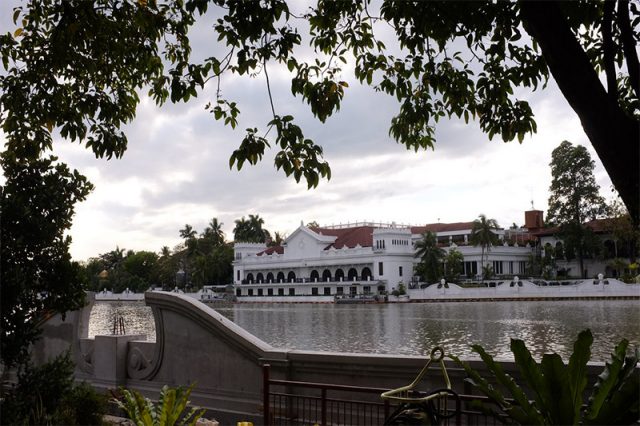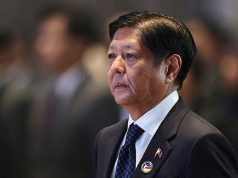
Some Filipinos reminded Toni Gonzaga that Malacañang is the residence and workplace of the elected president of the Philippines.
Their criticisms stemmed from Toni’s remark during a grand campaign rally in Cebu on Monday night, April 18.
When introducing the candidate, she said: “Konting-konting panahon na lamang at magbabalik na si BBM sa kaniyang tahanan-ang Malacañang.”
Toni made this statement after she performed Katy Perry’s “Roar” in front of thousands of supporters.
BBM refers to presidential hopeful Ferdinand Marcos Jr., whose presidential bid is supported by Toni.
Marcos and his running mate Davao City Mayor Sara Duterte-Carpio, along with their UniTeam alliance, held a grand campaign rally in Cebu.
Their alliance also received the endorsement of the dominant Once Cebu Party, an affiliate of the administration PDP-Laban party.
The FREEMAN in Cebu reported the crowd estimate to be at 300,000.
Toni, meanwhile, received criticisms anew over her remark that implied Malacañang is Marcos’ home.
Critics pointed out that the place is both a temporary residence and office of anyone who gets elected to hold the highest position in the land.
“The Malacañang Palace is where the president works, the office of the president is in the Malacañang Palace. It’s not a home, but a workplace,” one Twitter user said.
“To call Malacañang a home instead of an office shows the mindset of a birthright instead government work and public service,” another user tweeted.
“Just like USA’s White House, Malacañang Palace is no one’s ownership,” another user noted.
Jesus Falcis, a lawyer and blogger, cited a Supreme Court ruling about public offices in his criticism through a Facebook post.
It was a case between the Commission on Elections and Cruz in November 2009 wherein the SC ruled in favor of the poll body. Part of the SC;s ruling reads:
“A public office is not a property right. As the Constitution expressly states, a ‘[P]ublic office is a public trust.’ No one has a vested right to any public office, much less a vested right to an expectancy of holding a public office.”
Falcis further described Malacañang as the “Palace of the People” that an elected president “rents” for six years.
“Malacañang is no one’s home. It is the Palace of the People rented out for 6 years as office space and temporary residence to the President of the Philippines,” he said.
Historian Kristoffer Pasion also shared a photo of the plaque of late President Ramon Magsaysay inside the Malacañang property.
In the photo, the text on the plaque reads: “Malacañang is the Palace of the People.”
“Nakalagay iyan sa base ng monumento ni Magsaysay sa harap ng Kalayaan Hall—ang pinakalumang gusali sa palasyo,” Pasion tweeted.
Nakalagay iyan sa base ng monumento ni Magsaysay sa harap ng Kalayaan Hall—ang pinakalumang gusali sa palasyo. https://t.co/HT9a3bX7xC pic.twitter.com/1aByd6k7Qz
— Kristoffer Pasion (@indiohistorian) April 19, 2022
Brief history
Google Arts and Culture, the search engine’s home for the world’s artifacts and artworks, has the following description for Malacañang:
“Malacañang Palace is the official residence and principal workplace of the President of the Philippines. It is located in old Manila district of San Miguel, and is commonly associated with Mendiola Street.”
It was also not originally built for politicians.
A wealthy Spaniard named Don Luís Rocha built it as a summer house in 1750.
Later on, it got sold and transferred to several owners until the Spanish colonial government procured the property.
The house itself has undergone drastic developments over the decades until it was transformed into its present Palace-like design.
The first politician who ever lived there was Spanish Governor-General Rafael De Echague Y Bermingham in 1863.
Emilio Aguinaldo was the first Philippine president to technically stay in the main Malacañang. However, he did not live there because he was held captive by the Americans.
It was Manuel L. Quezon who was considered to be the first one to reside at the Palace during his presidency.









